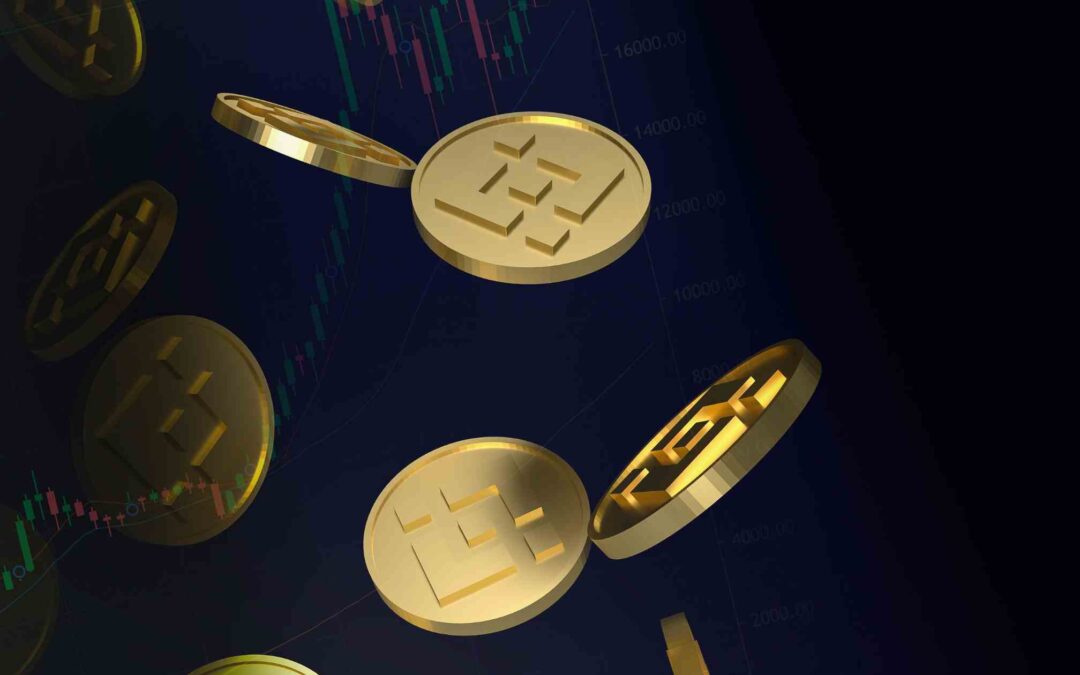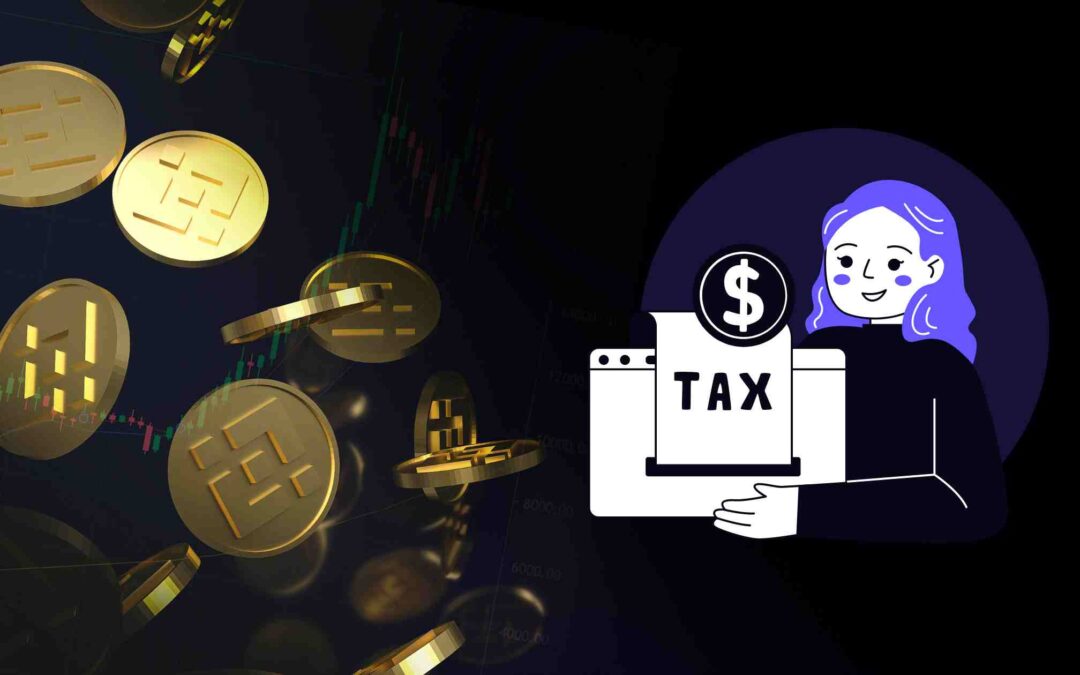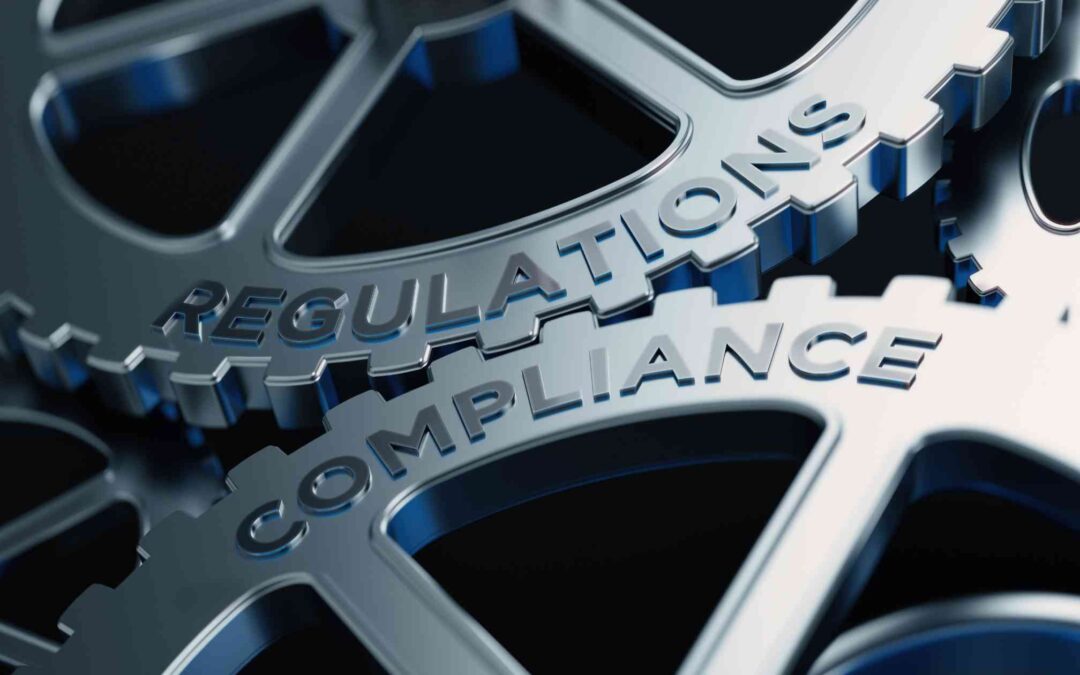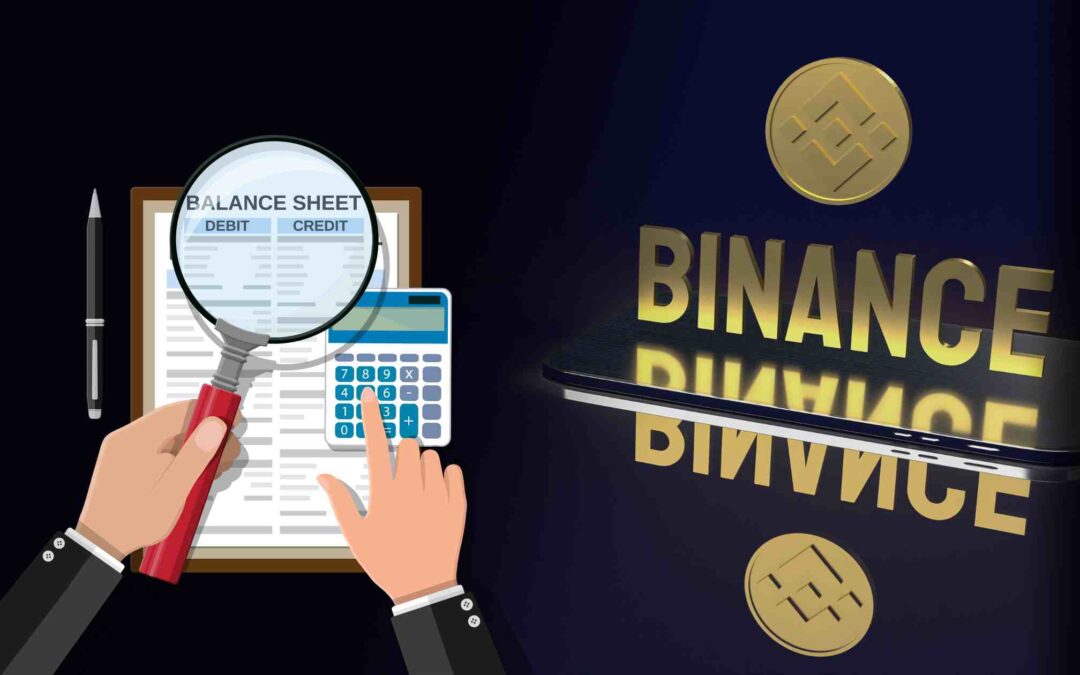
by Iulia Vasile | Feb 13, 2023 | Cryptocurrency, News
The recent SEC lawsuit against Paxos over Binance USD (BUSD) has caused confusion and debate among the cryptocurrency community.
The U.S. Securities and Exchange Commission (SEC) issued a wells notice to Paxos. They claim that BUSD is an unregistered security, which resulted in the New York Department of Financial Services (NYDFS) ordering the halt of BUSD issuance.
This has led to a range of reactions from the crypto community, with some members dismissing it as fear, uncertainty, and doubt (FUD), while others view it as an attack on the Binance exchange.
The community is split on their thoughts about the situation, with some saying that those who bought the stablecoin were not expecting it to increase in value.
The crypto community on Twitter started to talk about this controversy, but they seem to agree that nobody would buy a stablecoin and anticipate a profit. Others expressed confusion about the development, questioning how BUSD can be considered a security and asking their followers if they expected its value to reach $2.
Some even took it more personally, attacking SEC chairperson Gary Gensler, suggesting that he is on an “unhinged, unchecked crusade against crypto.”
However, some dismissed the news as FUD and pointed out that BUSD is fully backed and the halt in issuance by Paxos will not affect existing tokens. They encouraged everyone to stay informed but advised against making emotional decisions. A few voices have also pointed out the urgent need for a stablecoin registry framework.
Bitcoin analyst Tedtalksmacro also expressed similar thoughts, suggesting that BUSD may not meet the criteria of a security. The analyst hinted that the situation might just be a way to target Binance.
It’s important to understand that despite stablecoins being designed to have a fixed value, their holders can still generate profits through methods such as arbitrage, hedging, and staking.
What is BUSD?
BUSD is a stablecoin co-founded by Paxos and Binance. Paxos leverages blockchain technology to provide its Stablecoin as a Service product to other companies.
The company has also previously developed a stablecoin backed by gold, known as PAX Gold (PAXG). Both BUSD and PAXG tokens fall under the jurisdiction of the New York State Department of Financial Services.
BUSD is a fiat-backed stablecoin, pegged to the U.S. dollar. Paxos holds an equivalent amount of U.S. dollars in FDIC-insured banks or backed by U.S. Treasuries, serving as the reserves for the total supply of BUSD.
The price of BUSD adjusts in equal amounts to the changes in the value of the U.S. dollar.
Binance’s CEO still supports BUSD
Binance CEO Changpeng Zhao, also known as “CZ,” announced that the exchange would continue to support Binance USD (BUSD), despite the announcement made by the SEC that argues that BUSD is an unregistered security.
Changpeng Zhao (CZ), CEO of Binance, has reassured users that their funds are secure despite regulatory enforcement.
However, he stressed the fact that Paxos, regulated by NYDFS, fully owns and manages BUSD.
Paxos will continue to manage BUSD, including redemptions, and its reserves have been audited by multiple parties, according to Zhao. He acknowledged that the enforcement action might cause a decrease in BUSD’s market cap over time. But Binance will consider alternative non-USD-based stablecoins.
Despite this, Binance will remain supportive of BUSD on the exchange, though it acknowledges that some users may switch to other stablecoin tokens due to the enforcement.
CZ also explained that Paxos, the issuer of the Binance USD (BUSD) stablecoin, is regulated by the New York State Department of Financial Services. He has made assurances of its reserves, which have been audited by multiple parties.
Zhao also acknowledged that the actions taken by the SEC and NYDFS could have a significant impact on the future development of the cryptocurrency ecosystem. He warned of the potential implications if BUSD is ruled as a security by the courts.
Given the regulatory uncertainty in certain markets, Binance may also review other projects to ensure the safety of its users. This comes after a number of cryptocurrency service providers, and tokens have faced enforcement actions by American regulators, including Ripple’s ongoing legal battle with the SEC over XRP being an unregistered security. Kraken also ceased its staking services to U.S. clients and paid a $30 million settlement to the SEC for failing to register its crypto asset staking program.

by Iulia Vasile | Feb 6, 2023 | News
Binance, the cryptocurrency exchange, has introduced Binance Tax, a tax reporting tool, in preparation for the tax season.
Binance Tax is a tool that helps users access information on their crypto activity to comply with local regulations. It allows users to download a tax summary report that includes details of their gains and losses throughout the year, including spot trades, crypto donations, and fork rewards.
Currently, the Binance Tax tool is only available for Binance platforms, but the company intends to integrate with other platforms in the future.
Taxes in crypto
The launch of Binance Tax follows recent global regulatory crackdowns on the crypto industry, with regulators focusing on investor protection and compliance with local standards. Currently, only Binance users located in Canada and France have access to Binance Tax. Binance mentioned that are actively working to expand support to additional regions and include support for more networks and wallets beyond Binance.
In the US, the Securities and Exchange Commission has called for firms to disclose their exposure to crypto risks. It has reintroduced a bill to allow companies to apply for compliance agreements with federal agencies.
This move by Binance aims to ensure its users are prepared for the upcoming tax season and stay on top of their tax obligations.
One month prior to the launch of Binance Tax, the exchange joined an association to improve compliance with global sanctions.
In the past year, regulatory agencies worldwide have increased their control over the crypto industry, particularly after the FTX crisis. For instance, the Securities and Exchange Commission in Thailand plans to implement stricter rules for the crypto industry with a focus on protecting investors.
Regulators in South Korea, the Netherlands, and the US have been investigating exchanges for non-compliance issues, with some exchanges, such as Kraken, being forced to settle with the US Treasury’s Office of Foreign Assets Control.
In December 2022, the US SEC asked companies to reveal any exposure to crypto bankruptcies and risks. Additionally, a bill was reintroduced by a House committee chair to allow companies to apply for compliance agreements with federal agencies for crypto innovation.
What happened to the crypto regulatory landscape in 2022?
Regulations in the crypto world were once seen as an obstacle to adoption, but they are now seen as a means to gain global mainstream acceptance. In 2022, crypto businesses saw broader acceptance from regulators worldwide, with many being granted operational licenses and access to new markets. However, the collapse of crypto firms like Terraform Labs, FTX, and Celsius had a negative impact on the industry’s reputation with regulators and investors.
North America
In North America, the US became the leader in crypto disruption after China’s ban on crypto mining and trading in 2021. The US is home to the largest crypto ATM network and is the highest contributor to the Bitcoin hash rate. NFTs received significant attention in US politics, with the FEC permitting their use for political campaign fundraising.
Canada banned crypto leverage and margin trading after the FTX collapse, and the US introduced the Crypto-Asset Environmental Transparency Act to report on the energy use and environmental impact of crypto miners.
South America
El Salvador remains the biggest contributor to mainstreaming Bitcoin, with President Nayib Bukele announcing a new BTC investment strategy. Brazil also saw pro-crypto regulation, with a bill signed into law legalizing the use of crypto as a payment method and a Payment Institution License issued to Crypto.com.
Asia
Asia saw numerous regulators soften their anti-crypto stance and allow crypto businesses to operate. China loosened its crypto ban, and the Shanghai High People’s Court recognized Bitcoin as property with the right to compensation in a loan case. India imposed two new crypto tax policies, but during its G20 presidency, it plans to develop standard operating procedures for cryptocurrencies.
Pakistan’s central bank signed new laws to launch a central bank digital currency. South Korea spent much of 2022 tracking down those responsible for investor losses from Terraform Labs, but also saw a reduction in hacking activities after implementing Know Your Customer (KYC) requirements.
Europe
The European Union‘s Committee of Permanent Representatives has approved a framework for regulating cryptocurrencies, known as the Markets in Crypto-Assets framework, to ensure consistent regulation among EU member states. The International Monetary Fund, a UN financial agency, has called for greater regulation of African crypto markets. Meanwhile, the Central African Republic has reportedly passed a bill to legalize the use of cryptocurrencies in finance.
In the United Kingdom, the government is seeking to tighten regulation of the crypto industry. In response to the FTX collapse, the country’s HM Treasury has issued guidelines for the Financial Conduct Authority to monitor crypto companies and their advertising. This has further influenced an upcoming 2023 legislation to restrict foreign crypto services from operating in the UK.
Africa
In South Africa, the Financial Sector Conduct Authority has updated its 2002 Financial Advisory and Financial Intermediary Services Act to declare crypto as a financial product subject to financial services laws. Nigeria has banned ATM cash withdrawals of over $225 (100,000 nairas) per week to promote the use of its CBDC, the eNaira. African crypto exchange Yellow Card has received regulatory approval to expand its services across Africa.
The Dubai Virtual Assets Regulatory Authority issued operational approvals to crypto businesses in 2022, but had to revoke the Minimum Viable Product license from FTX MENA.
Australia has become the fourth largest crypto ATM hub, overtaking El Salvador, following the US, Canada, and Spain. Australian financial regulators continue their efforts from 2022 to create a regulatory framework for stablecoins.

by Iulia Vasile | Jan 29, 2023 | News
The crypto tracking system will keep a record of transaction history, gather information on transactions, and verify the origin of funds both before and after transfers.
The South Korean Ministry of Justice plans to launch a “Virtual Currency Tracking System” to combat money laundering and recover funds tied to criminal activities. This system will monitor transaction history, gather transaction information, and check the origin of funds before and after the remittance.
Regulators in South Korea are also cracking down on the broader crypto industry, recently investigating exchanges for native token listings and excluding global crypto exchanges from plans for third-party digital exchanges in the city of Busan.
The tracking system will be rolled out in H1 2023, and the ministry intends to develop its own tracking and analysis system later in the year. The aim is to improve the forensic infrastructure and conform to international standards in the fight against crime. The South Korean police have previously partnered with five local crypto exchanges to support criminal probes and foster a secure trading environment for crypto investors.
According to the press statement, the system is set to improve the forensic infrastructure and to come into aid in building a criminal justice system at international standards. All of this is needed to combat the level of sophistication that digital crime has reached over recent years, especially in regard to cryptocurrencies.
Police in South Korea has already established an agreement with local crypto exchanges that fight against digital crime and try to create a secure trading environment for crypto investors.
South Korea is harsh on crypto exchanges
The South Korean Supreme Court declared that Bithumb, a crypto exchange, must compensate investors for a 1.5-hour service disruption that happened on Nov. 12, 2017. The final ruling mandates that damages from $6 to $6,400 be paid to 132 affected investors. The total damages to be paid by the exchange rise up to $202,400 (251.4 million won).
The court stated that the operator, not the users who pay commissions, should bear the responsibility and cost of technical failures.
Bithumb is South Korea’s largest exchange and was temporarily impacted by a sudden doubling of average order volume. The exchange is facing ongoing investigations, including a special tax probe and a fraud case against a former chair.
South Korean government reacts to the Terra collapse
South Korean authorities are still investigating and confiscating assets related to the Terra ecosystem over six months after its collapse. In November, 140 billion won ($108 million) was seized from Terra co-founder Shin Hyun-Seong, and now, the Seoul Southern District Court has ordered to freeze of 120 billion won ($92 million) in assets of former and current CEOs of Terraform Labs’ affiliate Kernel Labs. The news was reported on Dec. 20 by The Korea Economic Daily.
Kernel Labs is a blockchain consultancy founded in 2018, specializing in decentralized apps and blockchain payments. It has close ties to Terraform Labs, with its CEO previously serving as VP of Engineering there and some employees having worked at Terraform’s South Korean office. The Seoul Southern District Court has seized 120 billion won ($92 million) in assets from Kernel Labs’ former and current CEOs as part of its ongoing investigation into the collapse of the Terra ecosystem. The court also accepted the prosecution’s request to confiscate assets from 7 individuals involved in profiting from the sale of pre-issued Terra tokens.
The CEO of Kernel Labs, Kim Hyun-Joong, is among those targeted in the Terra case, with prosecutors alleging he made illegal gains of at least $61 million. Another executive of Kernel Labs, a former CEO, is believed to have received $31 million in illegal proceeds. Kim reportedly made several real estate purchases in South Korea in 2021, including a $27 million building in the upscale neighborhood of Gangnam-gu and a $7 million apartment in Seongdong-gu.
The Terra case continues as global authorities search for Terraform Labs’ CEO, Do Kwon, who is believed to have fled to Serbia after leaving Singapore.
The Terra collapse has been one of the biggest impactful events in the crypto market in 2022. Its algorithmic stablecoin, TerraUSD Classic (USTC), was once among the top 10 cryptocurrencies but lost its dollar peg in May. This led to a chain reaction in crypto markets, resulting in major liquidations and instability, hitting hard the crypto lending sector.

by Iulia Vasile | Jan 18, 2023 | News
After the 2022 crypto collapses, the Thai securities regulator now requires crypto custodians and exchanges to have a contingency plan. The DeFi sector is increasing its TVL, and this expansion needs to assure clients of the safety of their funds.
New rules are being introduced by the Securities and Exchange Commission of Thailand to protect crypto investors.
As of January 17, 2023, the Thai SEC published regulations requiring virtual asset service providers to create a digital wallet management platform to ensure efficient custody of digital assets. These new rules are directed at crypto custodians, or virtual assets service providers (VASPs), that offer crypto storage services.
Three major requirements are included in the regulations, including creating policies and guidelines to oversee the risk management of private keys and digital wallets. VASPs must communicate with regulators about such policies and provide action plans to ensure compliance.
The Thai SEC also requested that crypto custodians create policies and procedures to manage digital wallets and keys. The SEC will require crypto custodians to create a contingency plan for any unforeseen events that could affect the wallet management system.
The SEC added that this included testing and drafting action procedures, assigning responsible persons, and reporting on the event.
Suppose an event affects the security of digital assets in custody. In that case, an system security audit and a digital forensic investigation must be conducted to assess the potential impact on client assets.
According to the announcement, the regulations regarding crypto custodians will take effect on January 16, 2023. These custodians must comply with all requirements within six months of that date.
The recent crypto regulations by Thailand’s SEC align with the authority’s efforts to implement stricter regulations. This comes in the wake of industry incidents such as the collapse of FTX. In early January, the authority reportedly began a new investigation against a local crypto exchange. Zipmex was accused of providing digital asset fund management services without proper authorization.
Such policies are important since more money is poured into crypto. Experts are calling this amount the Total Value Locked (TVL).
What is the Total Value Locked (TVL)?
Financial market experts have begun to accept the new type of investment that decentralized finance (DeFi) and have explored ways to measure its performance.
Since the rise of decentralized finance (DeFi) in 2020, financial experts have been exploring new ways to evaluate its performance. In addition to market capitalization, trading volume, and total and circulating supply, total value locked (TVL) is a popular crypto indicator. DeFi investors use it for assessing the overall value of assets, usually in USD. This estimate may be used across all DeFi protocols or in a single DeFi project.
For example, TVL in staking is particularly useful for investors looking to support the DeFi platforms with the highest rewards. It is the total value locked in the DeFi staking protocols and represents the amount of assets deposited by liquidity providers. In 2022, TVL reached nearly $2 billion globally, growing from $400 million in the previous two years. Having this sum of money in a vastly unregulated industry is becoming a risk.
TVL has become a crucial metric for investors looking to assess if the entire ecosystem or a single protocol is healthy and worth investing in.
The value of TVL value is affected by many other factors than withdrawals, deposits, and the actual amount that a protocol holds. The TVL changes with the value of either the native token or fiat currency. Some protocols may deposit funds in native tokens, so their TVL can vary with their value. The protocol’s TVL will also increase in value if a token is acquired.
Most DeFi apps are not regulated
The growth of DeFi has been substantial in 2021. But it still remains relatively small compared to the overall crypto-asset market capitalization. The TVL of the DeFi sector rose from around 18 billion EUR in January 2021 to over 240 billion EUR by the end of December 2021.
Currently, many DeFi platforms provide financial services in a non-compliant manner, exposing participants and the market to significant risks. Despite their complexity, many DeFi applications, when broken down, could represent regulated activities. These may follow the comprehensive frameworks already in place to preserve financial stability, protect financial consumers, promote investor protection and market integrity, and mitigate illicit finance risks. Non-compliance of DeFi systems with existing frameworks gives rise to pronounced risks for participants and the market.
However, compared to the size of the entire crypto-asset market, DeFi is still considered a niche segment. After the collapse of the stablecoin TerraUSD in early May 2022, TVL in DeFi dropped by almost 40% (approx €80 billion). Credit and staking protocols have experienced the biggest declines. Similarly, the value of many DeFi tokens decreased, particularly the DeFi token Luna which is directly linked to TerraUSD.
Some DeFi applications or activities are currently falling outside of the regulated space. This happens in some jurisdictions, and they raise risks that are left unaddressed by the existing rules.
Some of the characteristics of DeFi may be incompatible with existing regulatory frameworks. But these particularly given that the current framework is designed for a system that has financial intermediaries at its core. For example, frameworks are in place for the registration, licensing, and supervision of intermediaries involved in issuance, brokerage/trading, custody, and lending activities.
But the existence of intermediaries is contrary to the very essence of decentralized finance. And it is often difficult to even identify parties involved that can be assessed or regulated. Enforcement of existing regulations is also difficult to apply, given the absence of a responsible entity. As such, it may also be the case that current regulatory frameworks may not be suitable for regulating decentralized networks in certain jurisdictions.

by Iulia Vasile | Jan 11, 2023 | Blockchain, News
The adoption of the concept of “account abstraction” by Visa has the potential to greatly improve the user experience of Ethereum wallets.
One of the drawbacks of cryptocurrency is the high cost of mistakes.
For example, if a user loses their account keys, they may permanently lose access to their funds. This and other potential problems make it easier to lose money in cryptocurrency than in traditional banking. To address this, blockchain developers are working on solutions such as “Account Abstraction” to make it safer and easier to use crypto.
Account Abstraction (AA) uses smart contracts to execute transactions by implementing certain validation rules. With AA, users won’t need to sign each transaction with their private keys. The goal of AA is to make using Ethereum as easy as using a traditional bank account, allowing for easy transactions, automatic bill payments, and more.
It is important to note that AA can change the way people use crypto. That’s why it is important to understand how Ethereum transactions work today.
Types of accounts on Ethereum
On Ethereum, there are two types of accounts. These are the External Owned Accounts (EOA) and Contract Accounts (CA). EOAs, commonly used by Ethereum users, are accessed through wallet providers such as MetaMask and Coinbase Wallet. They have a pair of keys: a public key, through which anyone can send funds, and a private key, used to initiate transactions by the account owner. CAs, also known as “smart contracts,” are code-controlled accounts that live on the Ethereum network. These accounts cannot initiate transactions on their own, they need an EOA to send a transaction to them.
Losing access to an EOA (Externally Owned Account) on the Ethereum blockchain can be a serious problem as it is linked to a private key that has complete control over the account. If the private key is lost, then there is no way to regain access to the funds, as there is no key recovery process or help desk to assist.
This vulnerability is primarily caused by human error, which can be the biggest security flaw in Ethereum account management. According to a report by Chainalysis, it is estimated that up to 23% of all bitcoins in circulation (around 3.79 million BTC), could be lost forever due to forgotten keys.
Additionally, if a private key falls into the hands of hackers, they would have complete control over the corresponding funds.
How does Account Abstraction work?
Account Abstraction (AA) considers the limitations of Externally Owned Accounts (EOAs) by combining them with Contract Accounts (CAs). This allows for the creation of user accounts with built-in fail-safe mechanisms. Accounts could also have some other special features for verifying transactions. Ethereum co-founder Vitalik Buterin explains in a 2021 blog post that under AA, smart contract code would not only be used to implement the logic of applications but also the verification logic (nonces or signatures) of individual user wallets.
By utilizing AA, user accounts could be programmed to include social recovery systems where multiple individuals with their own keys have the ability to return an account to its owner if the owner loses access to the private key. It also allows for the creation of “multisig wallets” that transfer account ownership to a group. These wallets require multiple different parties to sign off on transactions as an additional security measure.
Moreover, accounts under AA could avoid hard-coded limitations of EOAs, such as gas fee payment in a single cryptocurrency like Ether (ETH). They could choose to use a different cryptocurrency (like DOGE) or assign someone else (like a friend) to pay gas fees.
Currently, it is possible to implement these systems using CAs, but it would require a significant degree of complexity and high gas costs as all transactions need to be initiated by an EOA.
Can Account Abstraction be implemented on Ethereum?
There are several proposals for adding Account Abstraction (AA) to Ethereum, with the most notable being EIP-4337. According to Gazso, the co-author of the EIP, this proposal is the first one that can achieve AA without requiring a hard fork.
The main advantage of EIP-4337 is that it does not necessitate any modifications to Ethereum’s core protocol. Instead, it would introduce a new account abstraction layer on top of the core protocol, allowing wallet providers to create user-owned accounts that utilize smart contracts to establish the rules for initiating transactions.
Despite the availability of these tools, AA is not yet widely adopted. The main reason is the lack of momentum in creating and distributing new wallets. Convincing users to try new technology and wallets is a difficult task, said Gazso.
As a result, many users opt for more established and well-tested options such as MetaMask. However, it seems that this trend is changing, and there is an increasing interest in implementing these new technologies.
Is Account Abstraction happening already?
Some layer-2 solutions on Ethereum are exploring the integration of Account Abstraction (AA) as a feature. StarkWare, the company behind the StarkNet blockchain, has already implemented AA.
The Co-founder and president of StarkWare, Eli Ben-Sasson, has stated that AA could be used in the future to authorize payments using facial recognition or biometrics, similar to how FaceID is used to authorize credit card payments for iPhone users. He also said that infrastructure for this is already present on StarkNet.
In recent times, Visa also announced its proposal to utilize Account Abstraction to deploy automatic payments using StarkNet infrastructure, which would be similar to automatic payments in a bank account, but on the blockchain.
Other companies, such as Gnosis Chain, are also exploring the integration of AA in their infrastructure. Gnosis Chain co-founder Stefan George stated that interest in AA is increasing as more developers and users become aware of its potential. Gazso also stated that 2023 would be the “year of Account Abstraction” and the topic widely discussed s in the crypto and blockchain space.

by Iulia Vasile | Jan 6, 2023 | News
Policymakers have scrutinized Binance, the largest crypto exchange, amid multilateral sanctions against Russia and U.S. sanctions against Iran. At the same time, the exchange fails to make its balance sheet fully transparent to auditors.
Binance joins the Association of Certified Sanctions Specialists
In an effort to stay compliant with global sanctions, Binance was one of the first cryptocurrency firms to join the Association of Certified Sanctions Specialists (ACSS).
According to a news release on January 6, Binance announced that its sanctions compliance team would receive training as part of the ACSS certification process. The website states that the group offers an exam covering “knowledge and skills common for all sanctions professionals in different employment settings.”
“The blockchain industry is still young, and it’s important to maintain the highest level of compliance in a rapidly-evolving space,” stated Chagri Poyraz, Binance’s global head for sanctions. “At the end, we want the industry standard in security and compliance to continue alongside other industry players.”
In October 2022, Poyraz stated that the exchange had complied with multilateral sanctions against Russia after the country invaded Ukraine. However, he said there was “room for improvement” when it came to clarity in EU guidelines on crypto.
Binance claims that the ACSS training will inform the exchange’s staff about guidelines from the U.S Treasury’s Office of Foreign Assets Control, and help them to avoid potential violations. According to Binance, the exchange is the largest in the entire crypto space and is available in over 100 countries.
Binance US does business in US-sanctioned countries
There have been reports that Binance might have granted Iran-based users certain services, which may be in violation of United States sanctions. This has prompted officials to investigate.
An investigative report by Reuters shows that individuals in Iran continued trading on Binance even after Iran was placed on a blacklist.
Iranians using the exchange also raises questions about capital controls that were increased against Iran in 2018. Binance itself is based in the Cayman Islands and is therefore not subject to U.S. sanctions prohibiting Iranian entities from doing business.
But, Binance US (the version of the exchange that operates in the US) could face secondary sanctions for doing business with a sanctioned country and providing an opportunity for Iranians to circumvent trade embargoes.
Binance aims to build trust with crypto holders but fails to provide transparency
With over 8 billion people on the planet, over 320 million are crypto holders, according to a TripleA estimate. Cryptocurrency use is expanding, but as of the beginning of 2023, only 4% of the world’s population uses it.
Binance, the world’s largest crypto exchange, is trying to boost confidence following a spike in customer withdrawals in December 2022 and a sharp drop in its digital token value.
According to the exchange, net outflows totaling $6 billion were managed “without breaking stride” in the first week of December 2022. This is because its finances are strong, and “we take responsibility as custodians seriously.” Binance founder Changpeng Zhao said that his company would lead by example and make a point to prove its transparency, especially after the bankruptcy of the FTX crypto exchange, which collapsed in November 2022.
Reuters’ analysis of Binance’s corporate filings reveals that the core business, the Binance.com exchange, which has processed trades in excess of $22 trillion this fiscal year, is mostly hidden from the public.
Binance refuses to disclose the location of Binance.com. It does not disclose basic financial information like revenue, profit, and cash reserves. Although the company has created its own cryptocurrency coin (BNB coin), it doesn’t disclose its role on its balance sheet. It lends money to customers against crypto assets and allows them to trade on margin with borrowed funds. It doesn’t provide details about how large those bets were, how vulnerable Binance is to this risk, nor the extent of its reserves for financing withdrawals.
While Binance has said that it has been audited using the proof-of-reserves mechanism, the auditing firm has deleted the initial report and paused its proof-of-reserves checks due to miscommunication and the way the public perceived the reports. The auditing company, Mazars, did not make any further comments, but Binance’s CEO had already tweeted in Dec 2022 that the audit had been completed.





